World Cup finals: Why is Qatar 2022 controversial?
- Published
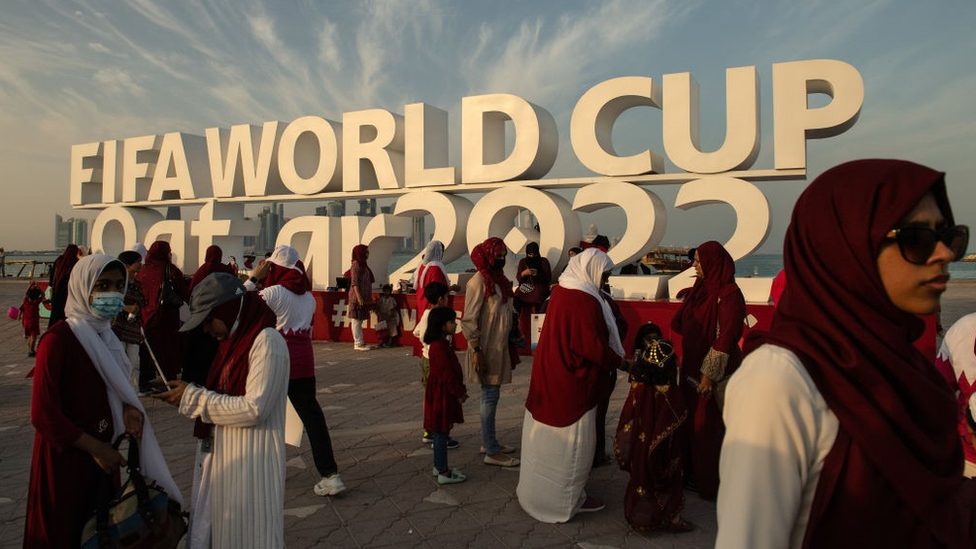
Qatar is expecting 1.5 million football fans to visit during the World Cup finals.
But the decision to host the tournament in the Gulf state has drawn widespread criticism.
What are Qatar's laws on same-sex relationships?
Homosexual acts are illegal in Qatar because they are considered immoral under Islamic Sharia law.
Punishments include fines, prison sentences of up to seven years - and even death by stoning.
Qatar's World Cup organisers say "everyone is welcome", and claim no one will be discriminated against.
However, Qatar 2022 chief executive Nasser al Khater says laws on homosexuality will not change and visitors should "respect our culture".
A recent Human Rights Watch report, external says Qatari security forces continue to arrest citizens who are gay, lesbian, and transgender, sometimes forcing them to undergo conversion therapy. Qatar says the report contains false allegations.
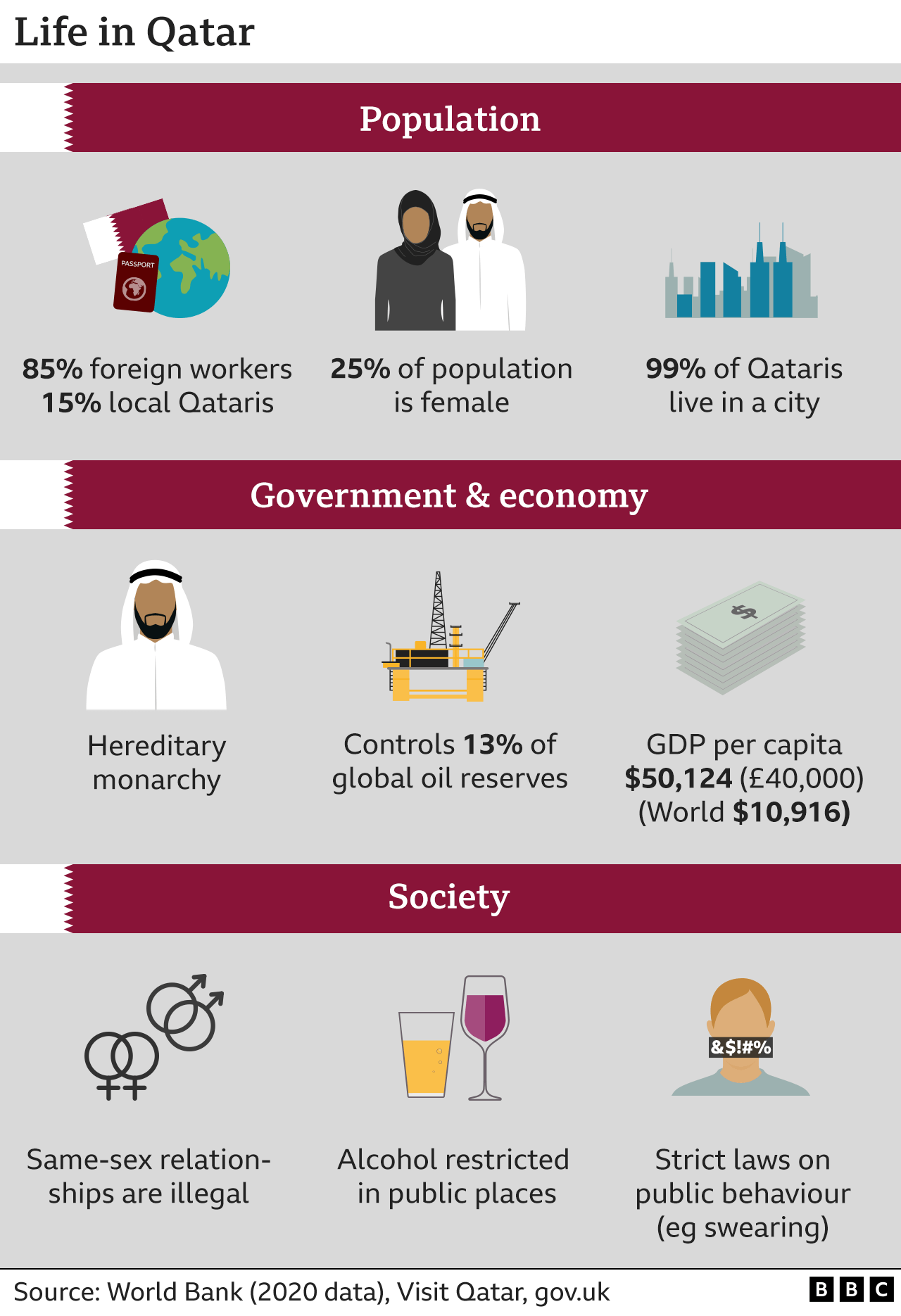
Fifa wrote to the 32 World Cup teams telling them "now focus on the football". It said football should not be "dragged" into ideological or political "battles".
In response, 10 European football associations - including those of England and Wales - said "human rights are universal and apply everywhere".
England captain Harry Kane and the captains of the other nine teams involved will wear "One Love" armbands to show support for LGBTQ+ people.
How are foreign workers treated in Qatar?
An estimated 30,000 workers from countries such as India, Bangladesh, Nepal and the Philippines built facilities for the World Cup finals - including new stadiums, hotels and roads.
In February 2021, the Guardian said 6,500 workers had died in Qatar since it won its World Cup bid, using data supplied by embassies in Qatar.
However, the Qatar government said the total was misleading as it counted many foreign workers who had lived in Qatar for a long time and had not worked on World Cup projects.
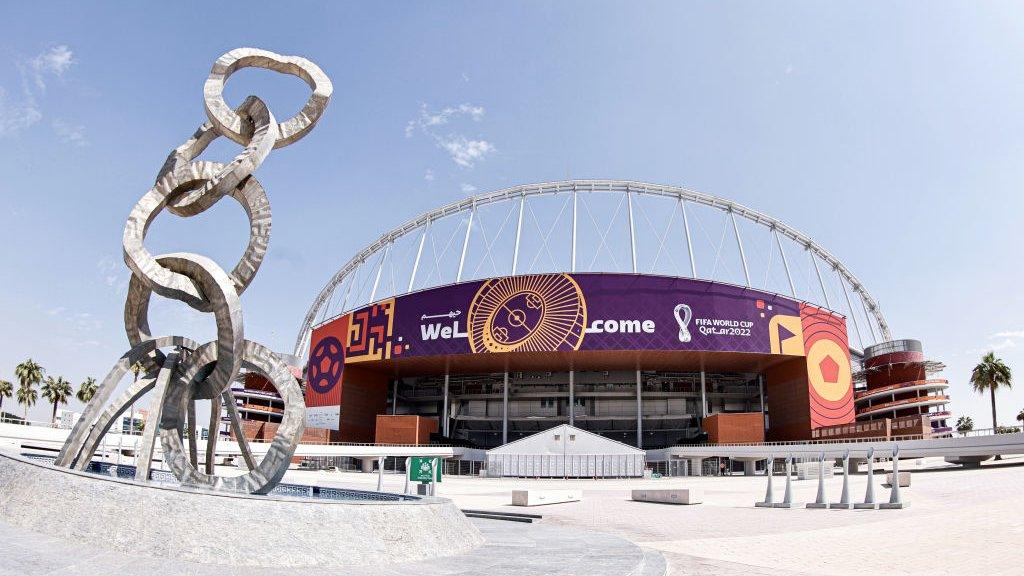
Qatar has built seven stadiums for the finals, including the Khalifa stadium in the capital Doha
Qatar's official records show that between 2014 and 2020, there were 37 deaths among labourers at World Cup stadium construction sites, only three of which were "work-related".
However, the International Labour Organisation says this is an underestimate. It says Qatar doesn't count deaths from heart attacks and respiratory failure as work-related - even though these are often caused from working in high temperatures.
It estimates that 50 foreign labourers died and more than 500 others were seriously injured in Qatar in 2021 alone, and another 37,600 suffered mild to moderate injuries.
Will Qatar allow alcohol at the World Cup?
Qatar announced two days before the tournament that it will not allow sales of beer at World Cup stadiums.
Now, alcohol will only be available in designated fan zones and the bars of luxury hotels. It will cost between £10 and £12 a can, or pint.
There will also be areas where drunken fans will have to go, to sober up.
Non-alcoholic beer will still be sold at the stadiums.
Why was Qatar chosen as the World Cup host?
In 2010, Qatar clinched the rights to the World Cup after winning a ballot of Fifa's 22 executive members, beating bids from the US, South Korea, Japan and Australia.
It is the first Arab nation to host the tournament.
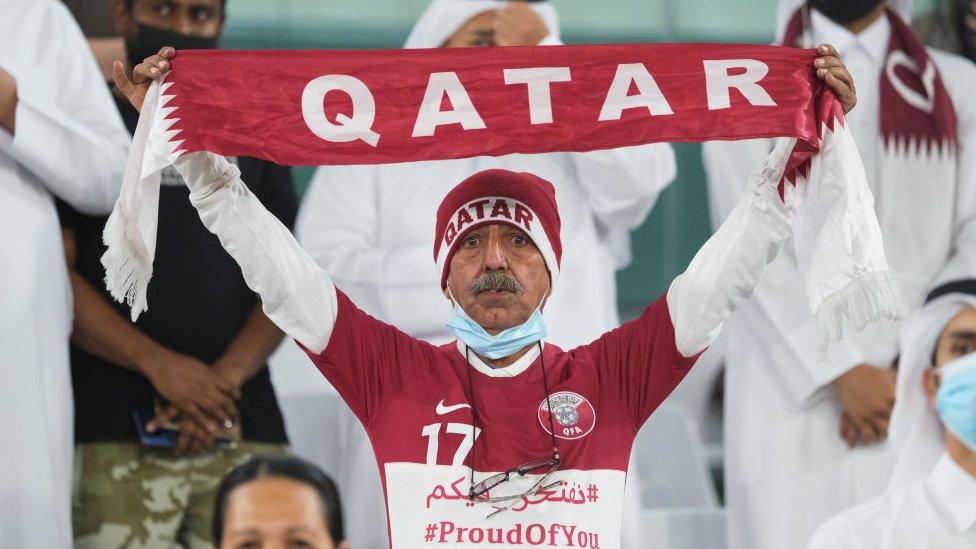
Qatar was accused of paying Fifa officials £3m ($3.7m) in bribes to secure their backing, but was cleared after a two-year investigation.
At the time, Fifa's then-chairman, Sepp Blatter, supported the bid, but now says it was a "mistake" to award the World Cup to Qatar.
How has Qatar prepared for the World Cup?
There are eight stadiums, seven of which were built for the tournament.
Some 100 new hotels have also been built, as well as a new metro system, new roads, and an extension to Hamad airport.
Qatar has also built an entire new city around the Lusail stadium, in which the final match will be played.
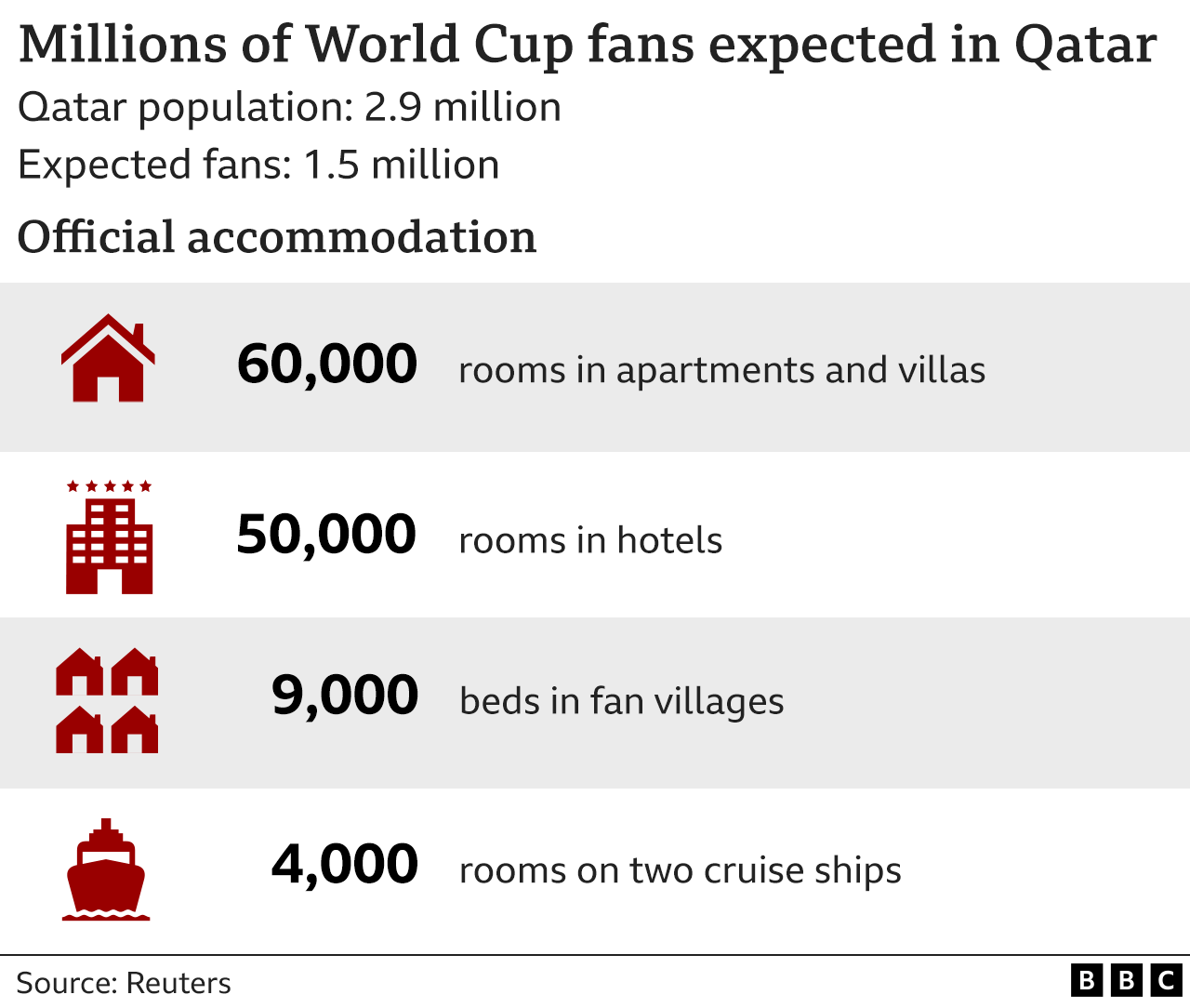
How hot is it in Qatar?
During the months of November and December, the temperature in Qatar is usually around 25C (77F).
Had the World Cup finals been held in June and July, as they usually are, matches would have been played in temperatures exceeding 40C, and possibly reaching 50C.
Qatar initially proposed hosting the finals during the summer in air-conditioned, enclosed stadiums, but the plan was rejected.
